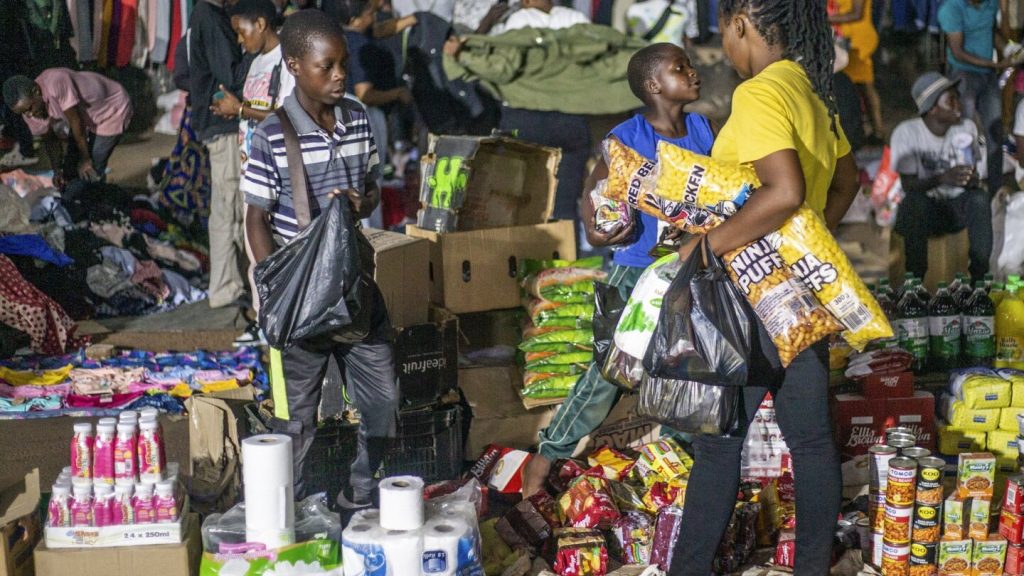In Harare, Zimbabwe, traditional stores are struggling to survive due to the volatility of the country’s new currency, pushing prices up. Many consumers are now turning to informal markets that pop up at night to avoid authorities. These open-air bazaars offer a variety of goods at much cheaper prices, attracting shoppers like Batsirai Pabwe who find better bargains there than in formal stores. The informal traders, including children, are able to offer lower prices as they are unfettered by rising energy costs, taxes, and exchange rate regulations.
The introduction of Zimbabwe’s sixth new currency, the ZiG, in April aimed to replace a depreciated currency and stabilize the economy. However, seven months later, the ZiG is facing challenges similar to its predecessors. The gap between official and black market exchange rates continues to widen, prompting many to prefer using the more stable US dollar. Traditional stores are struggling to compete with informal markets, leading to warnings of store closures and impaired investments. The Retailers Association of Zimbabwe highlighted the difficult situation that formal retailers are facing and the impact of a currency crisis on their operations.
Economics professor Gift Mugano emphasized the challenges faced by formal retailers, citing high overhead costs and unfavorable exchange rates as major obstacles to their survival. The informal sector, on the other hand, operates more flexibly and adapts to challenges such as power outages by using cellphone flashlights. In Harare’s Central Business District, the contrast between a quiet supermarket and bustling informal markets is evident, with street vendors attracting crowds of shoppers with their bargains. For many like Oswald Gari, working in the informal sector at night is a means of supporting their families in a country where formal employment opportunities are limited.
With more than 80% of Zimbabwe’s employable population working in the informal sector, the night markets provide a source of income and affordable goods for many. Shopping at these markets offers consumers like Batsirai Pabwe a less confusing and more affordable alternative to formal stores that struggle with pricing uncertainties. Despite the challenges faced by formal retailers and the economic instability brought about by the new currency, the informal sector continues to thrive, meeting the needs of shoppers and providing opportunities for those seeking alternative sources of income. As the debate over currency stability and economic conditions continues, many Zimbabweans are turning to night markets as a viable solution for their daily needs.


